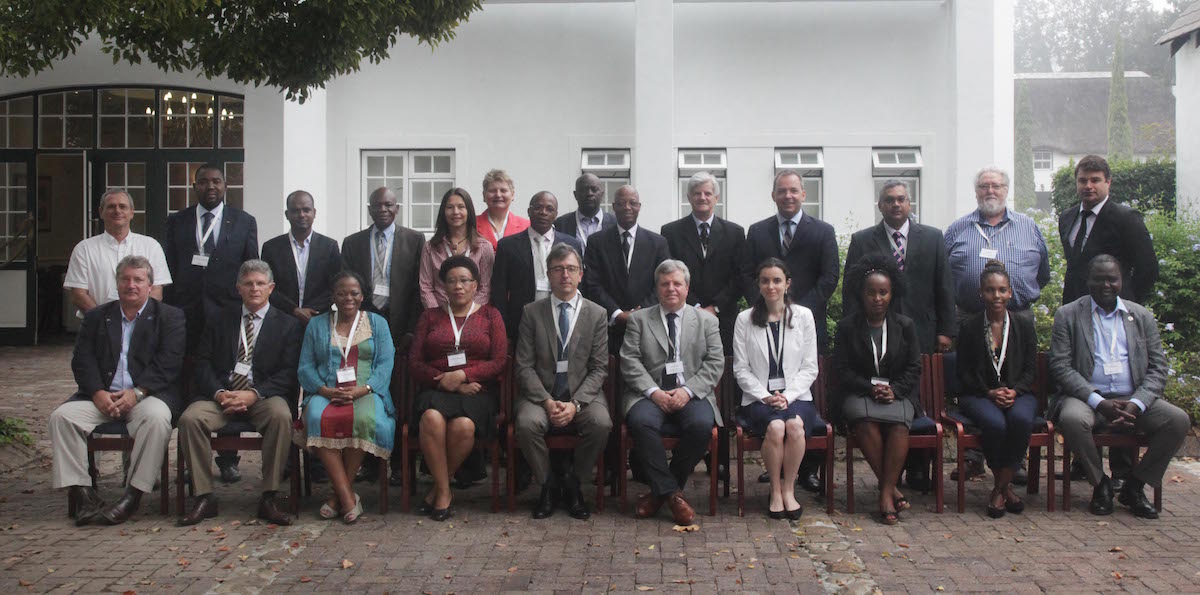NAIROBI (HAN) April 27, 2016. Public Diplomacy & Regional Security News.The Institute for Security Studies (ISS) has successfully partnered with the Foundation for Strategic Research (FRS) to promote the Hague Code of Conduct (HCoC) against Ballistic Missile Proliferation on the African continent.
The Hague Code of Conduct is the only multilateral instrument that deals specifically with the spread of ballistic missiles.
Signed in November 2002, it is only becoming more relevant given the global threat posed by the proliferation of ballistic missiles – some of which have the capability to deliver weapons of mass destruction.
The African continent is almost free of ballistic missiles. South Africa used to have a ballistic missile programme in the past, but renounced it in 1993. Egypt is currently considered as the only African state with an active ballistic missile programme, while some capacities may remain in Libya.
This does not mean, however, that the continent is free of the threat posed by such missiles. All African states are within reach of ballistic missiles operated by nuclear-weapon states. In addition, recent flight-testing of ballistic missiles conducted by the Democratic People’s Republic of Korea have dramatically illustrated the risks posed by ballistic missile proliferation, and the need to ensure predictability in this area.
By subscribing to the code, states take a political commitment to provide notifications prior to launches of ballistic missiles and space-launch vehicles, as well as on test flights.
Subscribing states also commit to submitting an annual declaration on their policies related to ballistic missiles and space-launch vehicles. These measures encourage transparency, and in this way the Hague Code of Conduct helps build trust among subscribing states, which in turn contributes to stability and peace.
Subscribing states also commit to curbing and preventing the proliferation of ballistic missiles, and to exercising maximum possible restraint in the development, testing and deployment of such missiles.
The Hague Code of Conduct is open to all countries on a voluntary basis. As of April 2016, some 137 states –including 36 African states – have subscribed.
On 11 April, the FRS and ISS hosted an expert meeting open to all African states that have not yet subscribed to the code. The meeting, which took place in Cape Town, gathered state representatives as well as delegates from national space agencies, the space and defence industry and academia.
The Hague Code of Conduct also pertains to peaceful space-launch activities. Discussions at the meeting highlighted the critical relevance of the code in this area, as more states and private sector entities become involved in the peaceful uses of outer space.
‘The HCoC is not a perfect instrument; the fact that it is not legally binding and that it does not establish a strict verification mechanism is a potential weakness. But it the best available tool related to ballistic missiles and, as such, it should be supported – even by countries who do not possess or plan to develop ballistic missile capabilities,’ says Noël Stott, a senior research fellow at the ISS.
Based in Paris, the FRS is the leading French independent think tank on defence and security issues. It was mandated by the European Union to promote the universalisation of the HCoC worldwide.
‘In partnering with the Institute for Security Studies, our objective was to work with an African organisation, guided by a pan-African vision, with close links to continental partners. Together, we have successfully established a platform for thorough discussions on the Hague Code of Conduct and its relevance for African stakeholders,’ says Xavier Pasco, senior research fellow at FRS.
The ISS plans to follow on the fruitful discussions that took place at the meeting, and to identify further opportunities to promote the code on the African continent. In doing so, the ISS contributes towards a world free of weapons of mass destruction and their means of delivery.
For more information, contact:
Nicolas Kasprzyk, ISS consultant +27 81 794 4947, nkasprzyk@issafrica.org


Leave a Reply